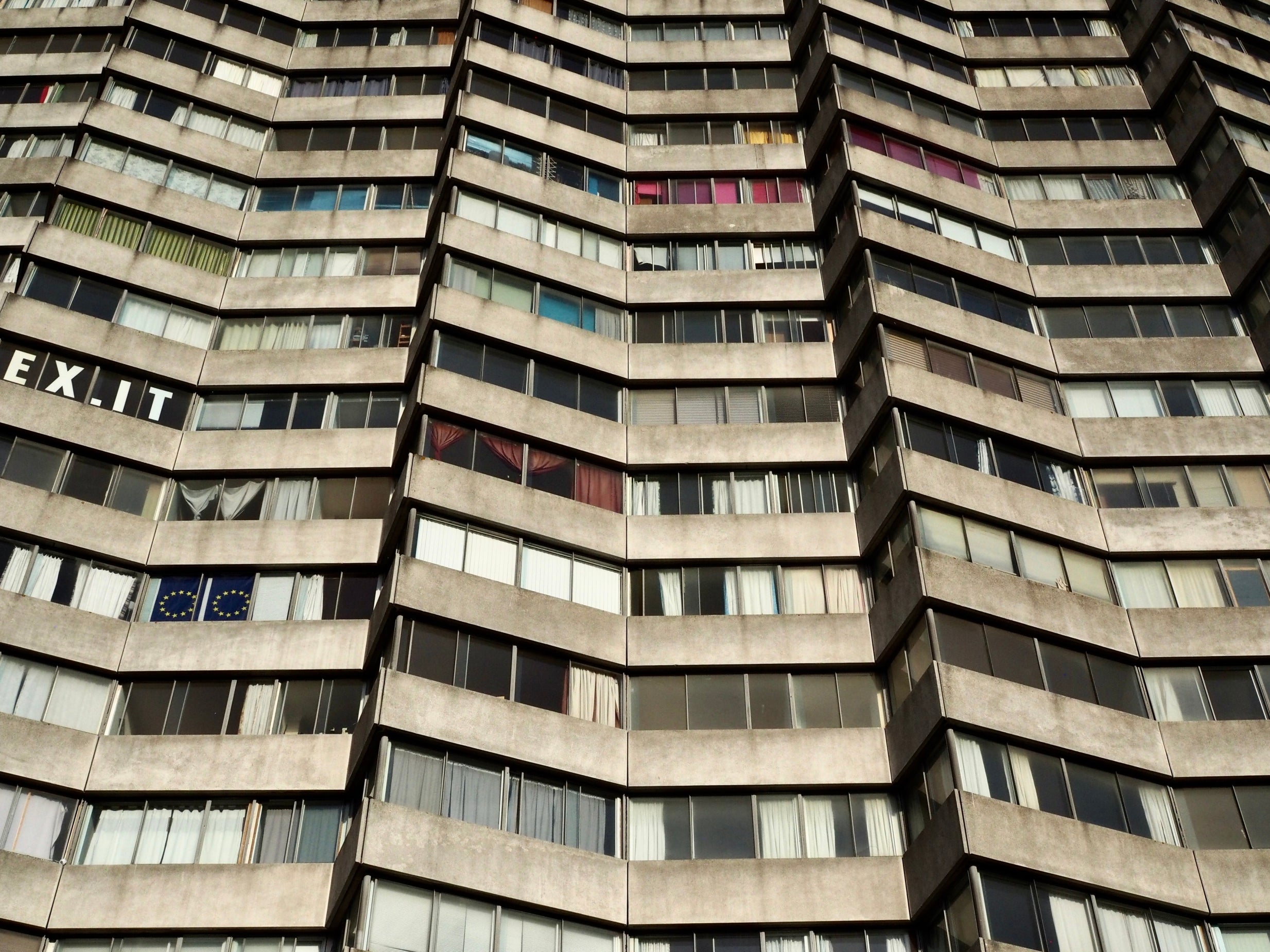Britain Before Brexit in photos: an intimate portrait of southeast England
The Independent’s photographer Richard Morgan examines his own country in the midst of Brexit’s chaos, scrutinising the contrasts of contemporary Britain and the ambivalence of modern Britishness. This week: southeast England

Britain is divided, by twelve regions, a statistical arrangement designed to help governments see the life of the population in graphs, charts, and tables. I’m looking at Britain through these regions too, but not statistically, not through numbers that ignore the brilliant details of everyday life, but through the lens of my camera, on the ground, up close.
Looming over Margate beach is a political message displayed in the windows of a high-rise: “BLOCK BREXIT”. It is at this that visitors first look through their screens, tilting their necks, squinting. I take a look too, then walk to the promenade, along which the English Defence League marched in 2016 under the banner of “White Lives Matter” and to the tune of “Love Train” by The O’Jays, which my friend had blasted in the direction of the marchers from the second-floor window of his beach-side apartment.
I go on, to the Tourist Information Centre, where I’m told the best things in Margate are fish and chips and micro pubs, and then down to the derelict lido by the sea, where the writing is on the wall: “Suka” (“Bitch”) in Polish and “Димка + Настя = Love” (“Dimka + Nastya = Love”) in Russian and English. I go along Cliftonville high street and through the old town to the top of a multi-storey car park where I look out across Dreamland and wonder if, as I had read, love really is the product and not the cause of union. I finish on the harbour arm, at dusk, outside a micro pub, and lean over the edge just in time to see the black head of Anthony Gormley’s cast iron man slowly drown in the changing tide.
Britain before Brexit: Southeast England
Show all 14Dover could do with one of Gormley’s men. It seems to me that the town’s proud self-identity as Britain’s gatekeeper, as its front line and final frontier, would be well embodied by one of the sculptor’s stoic, upright, puff-chested clones, fixed to the harbour floor, facing Calais, defiantly standing up to and surviving the relentless waves hurled at it by the sea, by Europe, by the world. The landlady of The Lanes tells me that people from Dover think of their hometown as the “lock and key of the kingdom”. And when I see the white cliffs and imagine Churchill’s defensive tunnels criss-crossing within them, and when I walk the poppy-lined high streets and look at the port with its systems of control and checking and ordering, I indulge in the landlady’s description and understand why, for some, Dover is indeed thought of as the nation’s arbiter, as its decisive town.
I was born in Portsmouth so I’m not surprised when travelling there on the train from Brighton my thoughts turn to the relationship between identity and birth. Why is the fact of being born somewhere so intimately connected to ideas about who we are?
When people ask me where I am from I tell them that I was born in Portsmouth. And yet, when I get there, I don’t feel at home at all. I explore Portsmouth as I would look at an old photograph of myself as a newborn: uncomfortably fascinated, searching for something recognisable, for some semblance of myself, but finding nothing. It’s me, but it’s not me, all at once.
One of my aims on this journey is to feel foreign in Britain. I want to notice and be affected by the country’s peculiarities, by all those things that would seem strange to foreign eyes, but seem normal and familiar to the British. This is a question of perspective, and yet when I step off the hovercraft and on to the Isle of Wight I really do feel like a foreigner in my own country.
Now I’m from the mainland, an “overner” as the locals say, inhabiting a land on which I don’t belong. Members of the Shackleton Royal Legion tell me how the local dialect differentiates between mainlanders living on the island and those who were born on it; between the expat and native; between alien and islander. It’s just another “othering” language, I think, marking out a centre ground from which everything else is a deviation.
And it occurs to me that here, as for Britain, the “island” plays a central role in the making of identity, no longer simply a piece of land surrounded by water, but a nation encircled by foreignness, by otherness, and by all the possibilities that inhere in such things.
For more of Richard Morgan’s work you can visit his website here
Subscribe to Independent Premium to bookmark this article
Want to bookmark your favourite articles and stories to read or reference later? Start your Independent Premium subscription today.

Join our commenting forum
Join thought-provoking conversations, follow other Independent readers and see their replies